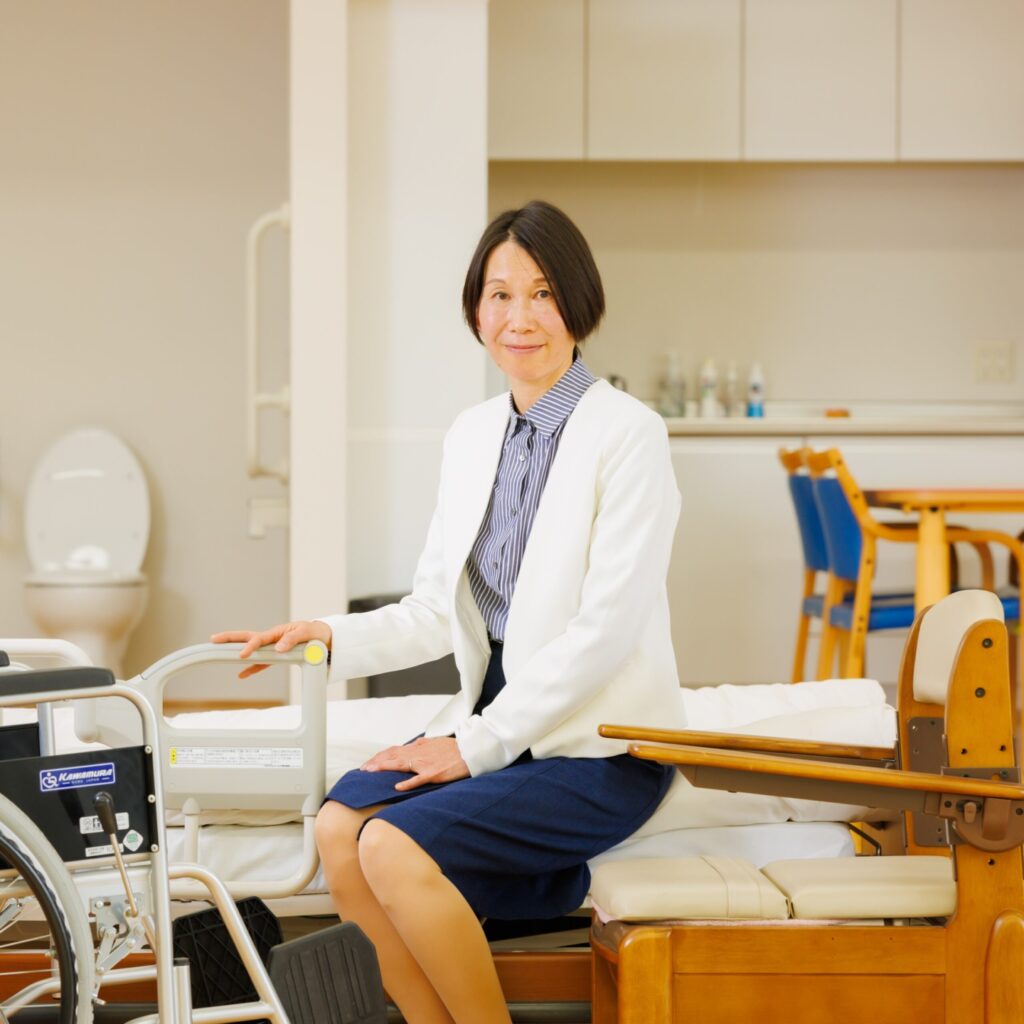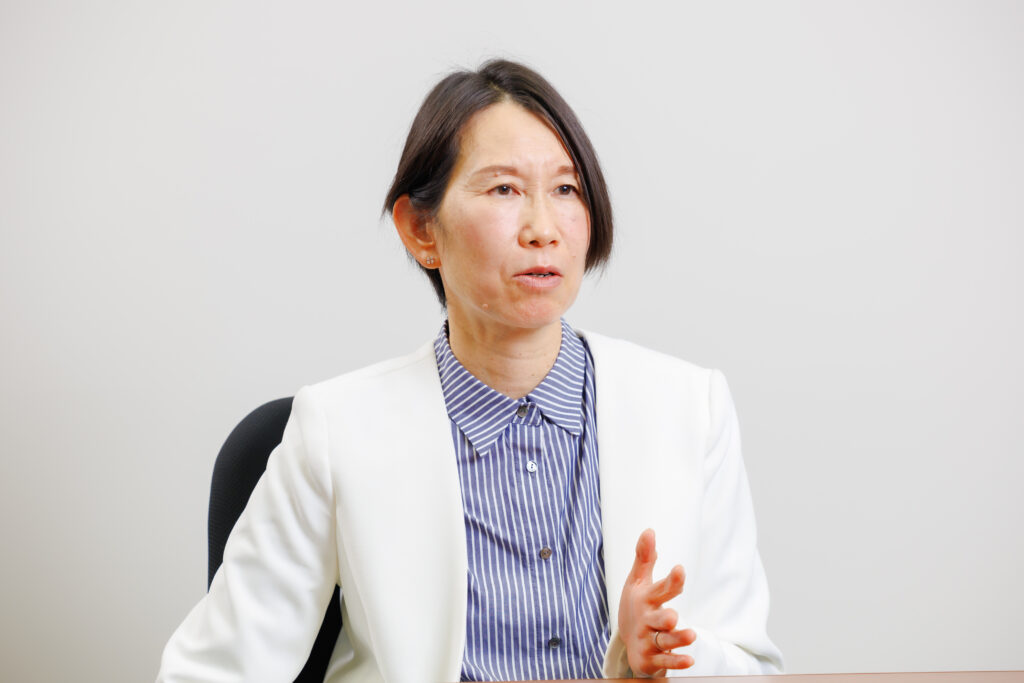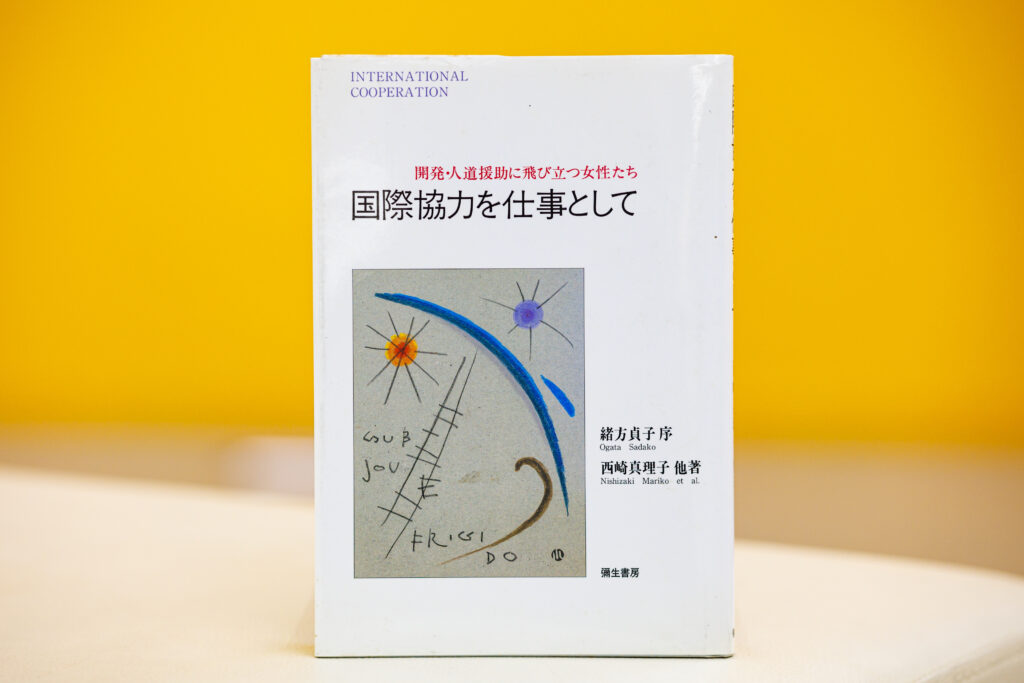
Associate Professor Nahoko Okamoto of the Faculty of Human Sciences specializes in the field of public health nursing. With a wealth of experience working with international development projects, she is involved in exploring policies aimed at assisting vulnerable people throughout society, like homeless people or younger generations facing economic hardship.
According to a survey by the Ministry of Health, Labour and Welfare, the number of homeless people in Japan has been declining year by year—yet the survey only provides an insight into the circumstances of certain people who live continually in a specific location.
If the survey was to include those who move around from place to place, stay at internet cafes or otherwise keep a low profile, this number is likely to be much higher. While each person has their own reasons for becoming homeless, I focus on social structures as a way of highlighting issues and working to resolve them.
The catalyst that led me to concentrate my research efforts on the homeless situation can be traced back to when I was an international aid worker involved in a sexual education development project for street children in Mexico.
During my interactions with those children, I came to realize that more than lacking a place to live, they had had also lost their very heart and soul. Until then I had mainly been focused on practical work supporting vulnerable people in society, but that opportunity made me expand my horizons and embark on a path as a researcher wanting to create a better society.
Commonalities between homeless people and street children

The majority of homeless people in Japan are middle to old aged. In addition to interviewing them or conducting surveys as part of my research efforts, I also study the effects of support projects and take part in volunteer activities. I inform others of the need for providing support based on these survey results, and have even launched new projects by getting municipalities involved.
One thing I have noticed through my research efforts is that, just like street children, homeless people also seem to have lost their heart and soul—this can be rephrased as the sense of pride that one builds up through life.
While some may be forced onto the streets due to a variety of circumstances, it is still possible to live like a normal person with a sense of pride. Providing suitable places, environments or atmospheres for these people is one of the factors that motivates my research and support efforts.
Living life on the streets is physically demanding on elderly homeless people. Many of them do receive welfare benefits and move into public housing, but it is not uncommon to see them eventually back on the streets again. Providing support to prevent such relapses from occurring is one of the challenges we need to address.
Healing social ills and reducing youth in economic strife
The number of people in their 20s and 30s facing economic hardship is on the rise these days. An example that illustrates this is temporary workers living in company accommodation who find themselves homeless and insecure after being laid off.
They are affected by their employee’s circumstances and find it difficult to build up their career—they are treated as if they are just a commodity. This type of lifestyle does not provide any sort of comfort to them.
Who is responsible for creating such social structures? The answer is society itself. We need to point out these contradictions, and voice our opinions about correcting them. What can be done to ensure people have a place they can feel at home? We need to continue applying pressure on national and municipal level governments by coming up with policies based on our research results.
As a specialist in the field of public health nursing, I intend to continue finding ways to make society better by focusing on curing societal ills.
The book I recommend
“Kokusai Kyoryoku wo Shigoto to Shite”(Working for International Cooperation)
with preface by Sadako Ogata, by Mariko Nishizaki et al, Yayoi Shobo

This book always gives me a sense of comfort when being involved in international development projects. Reading the words penned by Sadako Ogata, the first Japanese head of the United Nations High Commissioner for Refugees, and other specialists who worked tirelessly in the same field that I am working in gave me the courage to continue expanding my horizons without giving up.
-
Nahoko Okamoto
- Associate Professor
Department of Nursing
Faculty of Human Sciences
- Associate Professor
-
Graduated from Department of Nursing, Nagoya University College of Medical Technology, received her M.S. from the National Institute of Public Health and Ph.D. in International Studies at the Graduate School of Asia-Pacific Studies, Waseda University. Lecturer of Faculty of Nursing, Japanese Red Cross College of Nursing, associate professor of Medical science of Nursing, Dokkyo Medical University, and current position from 2016.
- Department of Nursing
Interviewed: December 2022